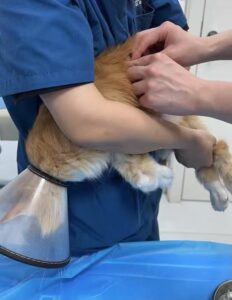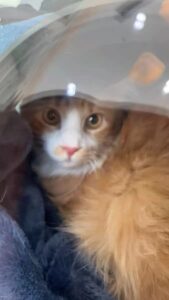Feline Infectious Peritonitis (FIP) is a viral disease that affects cats, caused by a coronavirus. The virus spreads from cat to cat through bodily fluids such as saliva, feces, and urine. The virus can survive on surfaces for several weeks and can be spread through contact with contaminated objects or environments.
There are two forms of FIP: wet and dry. Wet FIP is characterized by the accumulation of fluid in the abdomen or chest, while dry FIP causes damage to organs such as the liver, kidneys, or brain.

FIP is difficult to diagnose and there is no known cure for the disease. Treatment options are limited and often only provide temporary relief of symptoms. However, there is one promising treatment option for FIP: GS-441524.
GS-441524 is a drug that has shown to be effective in treating FIP in cats. The drug works by inhibiting the virus from replicating and spreading, allowing the cat’s immune system to fight the disease.
The drug is administered via injections over a period of several weeks or months, depending on the severity of the disease.
In addition to treatment, prevention is also important when it comes to FIP. Unfortunately, there is no vaccine for FIP that provides complete protection, but there are steps you can take to reduce your cat’s risk of contracting the disease.
Firstly, it’s important to ensure that your cat is living in a clean and sanitary environment. This means regularly cleaning their litter box, food and water bowls, and bedding. Additionally, you should make sure that any new cats that are introduced to your household have been tested for FIP before being allowed to interact with your other cats.

Finally, it’s important to have your cat tested for FIP if they show any symptoms or have been exposed to the disease. Early detection and treatment can greatly increase your cat’s chances of survival.
In conclusion, FIP is a serious and often fatal disease that can be devastating for cat owners. While there is no cure for FIP, there are treatment options available that can help manage the disease and improve your cat’s quality of life. By taking steps to prevent the disease and seeking prompt veterinary care if your cat shows any symptoms, you can help protect your feline companion from the devastating effects of FIP.

